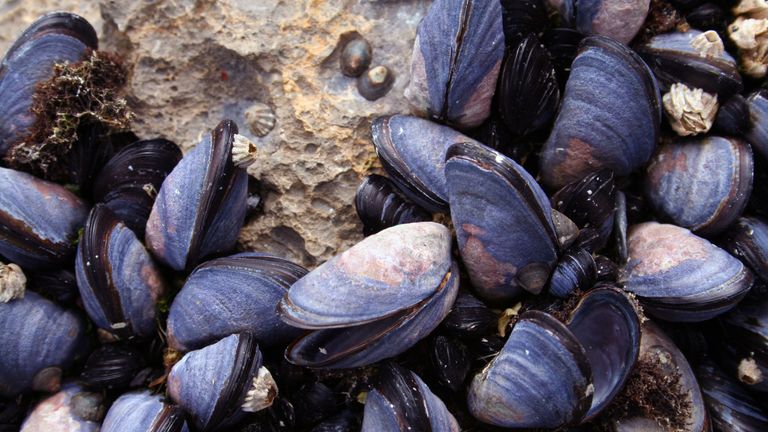By Lucia Binding, news reporter
Mussels are suffering from stress as a result of underwater noise from ships, new research suggests, and a shortage of the shellfish may be on the horizon.
Despite molluscs not having ears, scientists found they can detect changing sound levels in their environment.
And while noise pollution is not "immediately dangerous" for the creatures, it could impact on growth and may explain a decline in mussel banks in some areas of the UK.
The team of scientists from Napier University and Heriot-Watt University, both in Edinburgh, collected mussels from the shore at Musselburgh, outside the Scottish capital.
They tested their response to noise in a lab at the St Abbs Marine Station near Eyemouth – a charity dedicated to marine science, conservation and education.
Advertisement
Napier University's Karen Diele, the co-director of research at the marine station, said: "We recorded and played the sound of a ship's motor to a sample of blue mussels in a controlled setting, and measured biochemical and behavioural changes in the mussels.
"For the first time in a marine species, we detected noise-induced changes in DNA integrity, indicating an underlying source of stress."
More from Pollution
She added that the blue mussel is an "extremely important invertebrate in the UK" which plays an essential ecological role as a reef builder and a filter-feeder that keeps the water clean.
Matt Wale, also from Napier University, told how the mussels that had been exposed to noise consumed 12% less oxygen.
This would lead to increased energy use and potentially slower growth, he explained.
He said: "The filtration rate, or how much algae they consume, decreased by over 80% and there was a 60% increase in valve gape, which means the mussels are spending more time vulnerable to predators."


Sky News
[contfnewc] [contfnewc]






